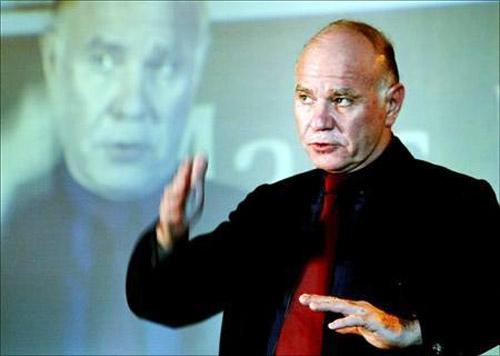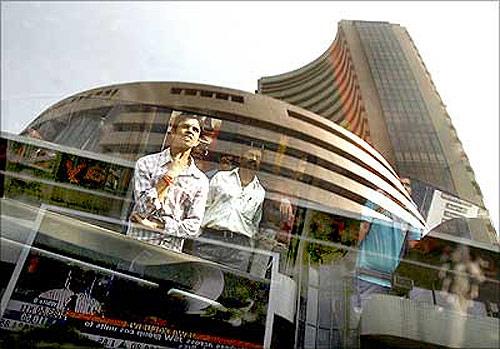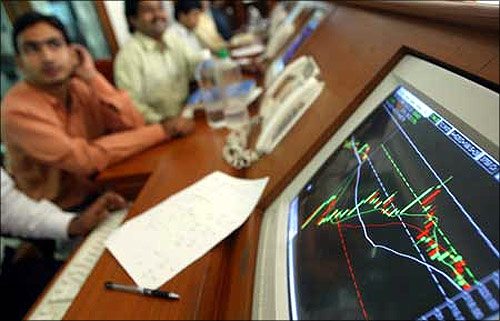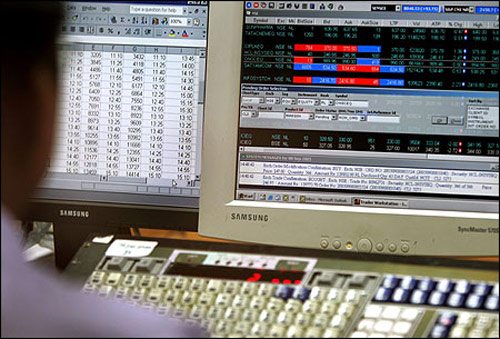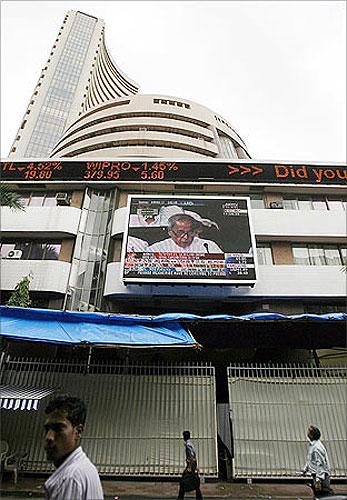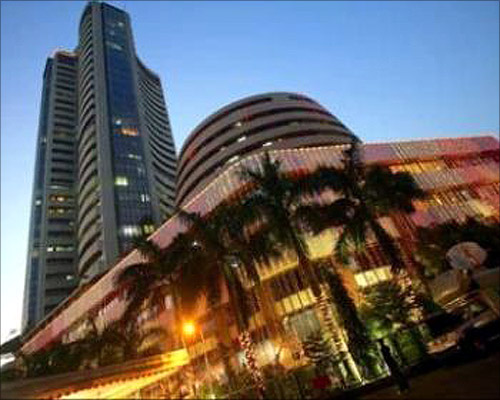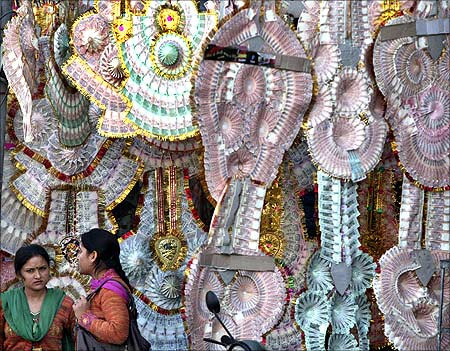 | « Back to article | Print this article |
Marc Faber on what investors must do to stay rich
Globally, the flow of negative news has seen some easing recently as the US and European central banks have extended support in terms of buying more bonds and keeping the interest rates low.
With these developments in mind, Jitendra Kumar Gupta spoke with Marc Faber, a renowned investment expert and editor and publisher of The Gloom, Boom and Doom report, to understand his views on the current global situation, as well as on the Indian markets, gold and other asset classes. Edited excerpts:
Click NEXT to read more...
Marc Faber on what investors must do to stay rich
I can say one thing that today the uncertainty is much higher than in the past. We continue to have central banks running the expansionary policies in terms of fiscal and monetary stimulation, which has led to the asset price inflation.
This creates very high uncertainty because you do not know how much more money will be printed in the US. Uncertainty arises because of these reasons.
The interventionists want to stimulate the economies by manipulating the markets, particularly interest rates. They are creating higher economic and financial volatility than in the past.
Click NEXT to read more...
Marc Faber on what investors must do to stay rich
<B>But, why does the world go so gung-ho about the US and Europe bond buying if that is going to result in more sovereign debt?</B><BR>
Central banks are buying bonds to manipulate asset markets and bring interest rates down. Essentially the quantitative easing policy is supposed to be independent. Actually, it's closely related to fiscal policy. In a sense, these programmes and the monetisation are designed to purchase government bonds.
Indirectly, these central banks, which have large fiscal deficit, are monetising the deficits and piling up more debts.
With these measures, they are postponing the problems rather than curbing them. In this process, the debt levels will only go up and certainly the sovereign rating of the US debt will come down at some point in time.
Click NEXT to read more...
Marc Faber on what investors must do to stay rich
<B>If the problems in Europe continue and slowdown in the US, Japan and China is sticky, where do you think asset prices are heading for the next five years?</B><BR>
Over the next five years or so, we will witness slow growth or no-growth in Europe, coupled with continuing drop in the standard of living, both in the US and Europe.
This will require money pumping or printing of money to support economies. However, a large part of this will flow into assets and erode cost of living.
So, in the interim, we will have assets prices moving up, but I would say in the long term, we will have far better opportunities compared to today.
But I believe eventually we will have a systemic crisis and everything will collapse. That I think will provide better opportunity to invest.
Click NEXT to read more...
Marc Faber on what investors must do to stay rich
<B>If the future is so uncertain, how much would you advocate investing in equity?</B><BR>
I still hold 25 per cent in equities. One might argue it's very low, but some of my investments like gold and debt have equity characters. If equity markets go down, the prices of these bonds will go up and in other words the yields will move up.
Further, if equities go up, the prices of gold, too, will move up, along with the liquidity pumped in the central banks. I do not know how the world would look in five years' time.
One day, there will be a deflationary collapse that will blow all the levers and deflate assets prices. But before everything collapses, we could go up in equity markets and in other assets market.
So I want to have them in my portfolio. In fact to me, if you buy equity, precious metals, diamonds, paintings and real estate, everything will go up somewhat more. But I believe in the event of collapse, you will be able to buy most of these assets at lower prices than what they are now.
Click NEXT to read more...
Marc Faber on what investors must do to stay rich
<B>Do you think the Sensex can make new historical high this year?</B><BR>
I do not think so. But if the government continues to pursue expansionary monetary policies and disregards the inflationary symptoms--we already spoke about the real estate prices going up in India and becoming unaffordable hurting many people--there could be some gains, but even in that case, I do personally believe that Sensex could not make new highs.
<B>Is India's economic downturn bottoming out with the hope of rate cut and voices of reforms making rounds?</B><BR>
I think the India economy will grow at a relatively slower pace for a while because it is not just about the policies that the government can take to boost the economic activities. Basically, one of the problems in many countries, including India, is rising cost of living. This has led to many people being squeezed and the purchasing power being eroded significantly.
Click NEXT to read more...
Marc Faber on what investors must do to stay rich
<B>If the cost of living is going up and inflation remains a structural issue, where do you think Indian investors could hide?</B><BR>
In the high-cost environment, I think there will be a tendency for the rupee to decline in value.
And I think the best thing to do in the long run or I would say investors will be better-off in equity than in fixed income securities.
They will be better-off in precious metals and real estate than, say, compared with fixed income securities. But in the interim, there could be wild fluctuations in some of these asset classes. The investors should be prepared to deal with the fluctuations.
Click NEXT to read more...
Marc Faber on what investors must do to stay rich
<B>What about gold, should one buy it?</B><BR>
I think we peaked out at about a year ago where the gold went to $1,921 and then corrected.
Currently it's above $1,700. I think in the near term, we could see some correction. I do not know how high the gold will go.
Whether it will go to $2,000 or $20,000 I do not know precisely. In the event of systemic failure, it can go higher and higher.
You will have to ask (Fed Chairman Ben) Bernanke and (European Central Bank chief Mario) Draghi precisely on how much money they will print. The sky is the limit.
